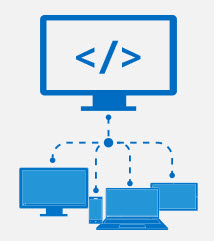Mobilize.Net releases bridge for porting Silverlight phone apps to Windows 10

Microsoft unveiled its four "bridges" for porting apps to Windows 10 last year. But there was a little-mentioned fifth bridge, that just this week, has been released.

That bridge was the Silverlight bridge, designed to get developers to port their Windows Phone 8.1 Silverlight apps to Windows 10.
The four primary bridges Microsoft announced at its Build 2015 conference in April last year were all meant to get developers to bring their apps to Windows 10. The four ones were the "Islandwood" iOS bridge; the "Astoria" Android bridge; the "Westminster" hosted Web apps bridge; and the "Centennial" Win32 bridge. The Silverlight bridge was the largely silent fifth member of the group.
Microsoft posted a porting guide to help developers manually port their Windows Phone Silverlight apps to Windows 10. But the actual bridge tools for doing this automatically were developed by Mobilize.NET.
On December 3, Mobilize.NET made its conversion tool generally available for download.
exclusive
The Mobilize.NET Silverlight bridge allows developers to convert Silverlight Windows Phone apps to Windows 10 Universal Windows apps and/or to HTML5 and JavaScript. According to the company's site, the bridging tool analyze an app's source code and converts the references either to Windows 10 application programming interfaces (APIs) or HTML5/JavaSript. "Either way you'll get native C# code with no runtimes," the company says.
Earlier this year, Microsoft has delivered the Westminster hosted-apps bridge, and moved a preview of the Islandwood iOS bridge project to Github. The company also postponed delivery of a preview of the Centennial bridge until some time in 2016.
While Microsoft hasn't confirmed that it has dumped plans to deliver the Android bridge -- designed to enable Android apps to run on Windows phone via emulation -- developers who signed up for a closed preview of that project say work seems to have ceased. Sources have said Microsoft has moved employees working on the Android bridge to the Islanwood bridge. Microsoft's only official word on the status of the Android bridge is that it's not yet ready (not that it's dead or being reworked, two possible scenarios mentioned by various contacts of mine).
Former Microsoft CEO Steve Ballmer seems to be a fan of the idea of running Android apps on Windows Phones. He was also a fan of Microsoft buying Nokia, a plan that hasn't turned out so well for the Softies. Just sayin' ....
In other developer-related news, Microsoft released earlier this week the updated Windows 10 software developer kit (the one for use with the November Update to Windows 10 release). There are a number of enhancements and updates to the Universal Windows Platform that are included in the updated SDK. A new Microsoft blog post explains what's in the 10586 SDK refresh.